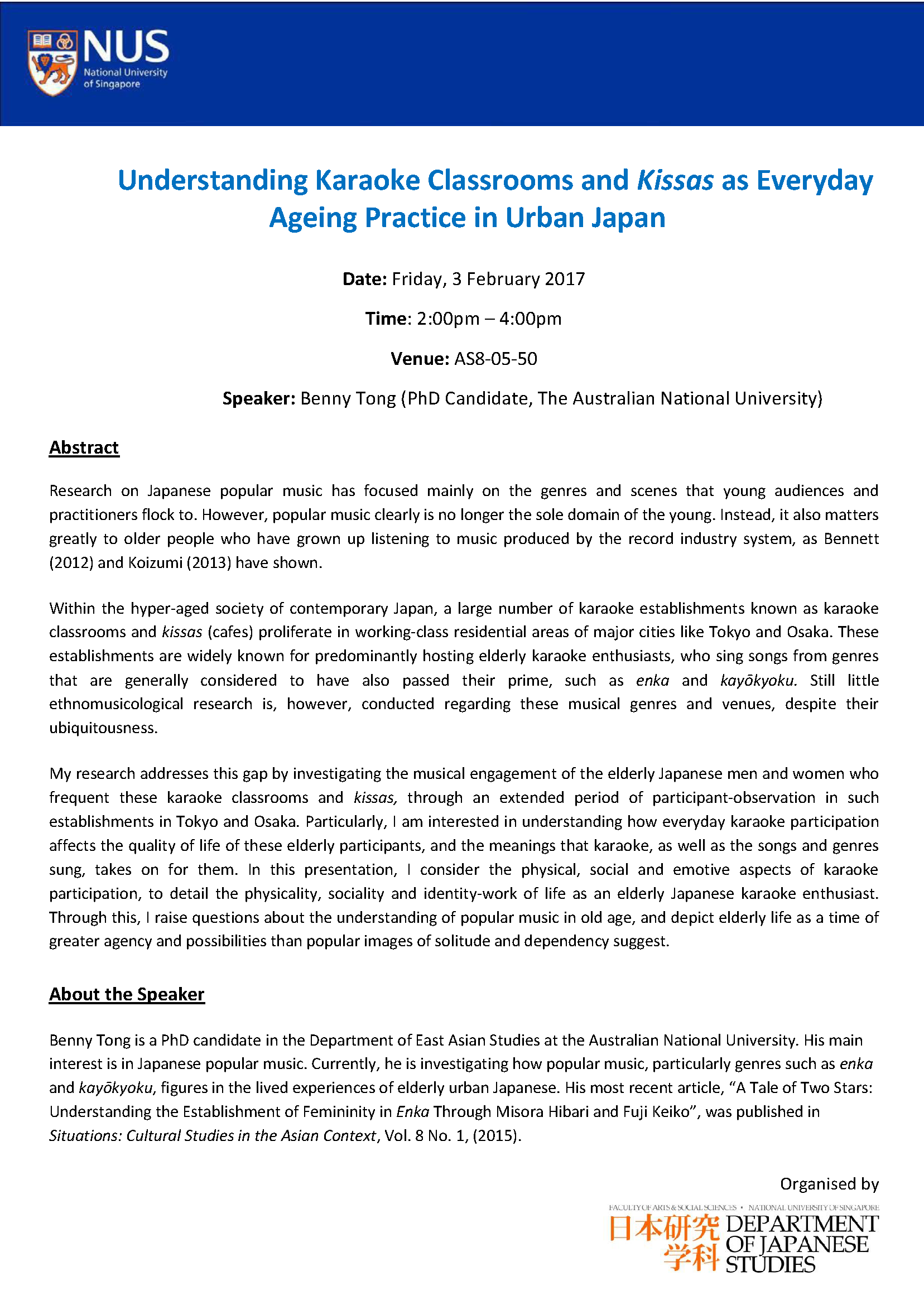Understanding Karaoke Classrooms and Kissas as Everyday Ageing Practice in Urban Japan
Abstract
Research on Japanese popular music has focused mainly on the genres and scenes that young audiences and practitioners flock to. However, popular music clearly is no longer the sole domain of the young. Instead, it also matters greatly to older people who have grown up listening to music produced by the record industry system, as Bennett (2012) and Koizumi (2013) have shown.
Within the hyper-aged society of contemporary Japan, a large number of karaoke establishments known as karaoke classrooms and kissas (cafes) proliferate in working-class residential areas of major cities like Tokyo and Osaka. These establishments are widely known for predominantly hosting elderly karaoke enthusiasts, who sing songs from genres that are generally considered to have also passed their prime, such as enka and kayōkyoku. Still little ethnomusicological research is, however, conducted regarding these musical genres and venues, despite their ubiquitousness.
My research addresses this gap by investigating the musical engagement of the elderly Japanese men and women who frequent these karaoke classrooms and kissas, through an extended period of participant-observation in such establishments in Tokyo and Osaka. Particularly, I am interested in understanding how everyday karaoke participation affects the quality of life of these elderly participants, and the meanings that karaoke, as well as the songs and genres sung, takes on for them. In this presentation, I consider the physical, social and emotive aspects of karaoke participation, to detail the physicality, sociality and identity-work of life as an elderly Japanese karaoke enthusiast. Through this, I raise questions about the understanding of popular music in old age, and depict elderly life as a time of greater agency and possibilities than popular images of solitude and dependency suggest.
About the Speaker
Benny Tong is a PhD candidate in the Department of East Asian Studies at the Australian National University. His main interest is in Japanese popular music. Currently, he is investigating how popular music, particularly genres such as enka and kayōkyoku, figures in the lived experiences of elderly urban Japanese. His most recent article, “A Tale of Two Stars: Understanding the Establishment of Femininity in Enka Through Misora Hibari and Fuji Keiko”, was published in Situations: Cultural Studies in the Asian Context, Vol. 8 No. 1, (2015).


